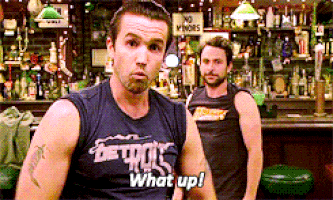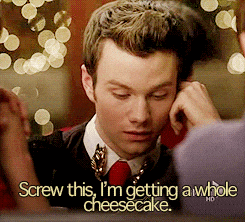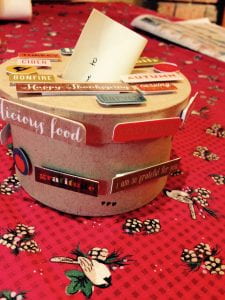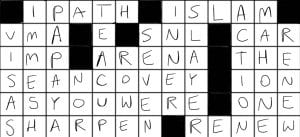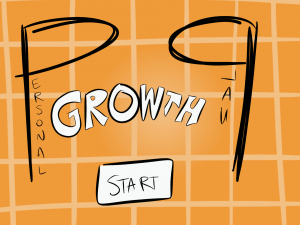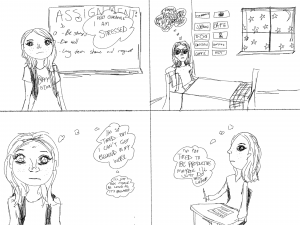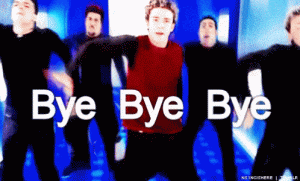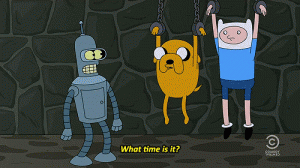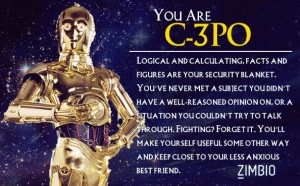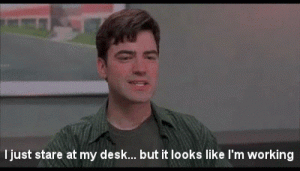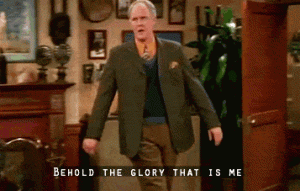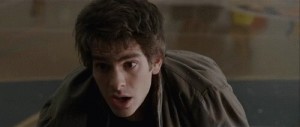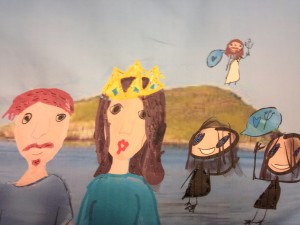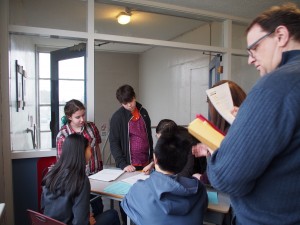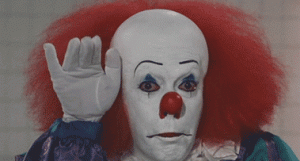Hello, Internet.
(After four and a half years, I’ve finally learned how to make gifs work!)
Oh, and of course, hello to those of you who are here in real life. You may recall also having been here four years ago. I went back to check what my goal was for my original Student Led Conference, but as far as I can tell I didn’t have one. My blog post just ends with this:
Aside from the oddly subject-appropriate Tim Curry gif, that probably wouldn’t fly in this blog post. After all, we are now at Peak MPoL – or, at least, as close as I can get, since this is my last MPoL, and I’d like to leave things off on a positive note.
Not that it would have flown in the last few PoLs either – we’ve been setting goals for a while now, and I’d like to take a look at whether or not I’ve achieved mine.
In my last TPoL, I mostly spoke about how vexed I was about having had to miss school for mono, and then I ended by saying how I should probably start taking care of myself properly.
Since then, I’ve started working more often, continued to play hockey and box and do school and choir, and now I’m also in the midst of attempting to convince universities to accept me. (Maybe I should send them cheesecake?) In fact, this isn’t the only instance where I’ve taken on a lot of responsibility this year. However, I think I have learned something, even if it isn’t exactly what I set out to learn.
So, first of all, let’s talk about cheesecake for a second. I’ve given you all cheesecake today (if you’re here in person) for two reasons: first of all, to create a serotonin response in your brain so you’ll associate my presentation with something positive and thus believe it’s better than it actually is; and second of all, as a smooth segue into my topic for this MPoL. Now, for many years, I’ve refused to eat cheesecake. Somewhere, maybe after trying it as a child, I got the idea that I disliked it. So, I’ve been eating other baked goods, and avoiding cheesecake like the plague.
Recently, however, it occurred to me that I hadn’t eaten cheesecake in so long, I couldn’t recall what it tasted like. I decided that I couldn’t be sure that I didn’t like it unless I tried it again. So I did, and lo and behold, I had a new, cheesy overlord to worship.
How does that relate to my learning, you might ask? Well, there’s a lot of lessons to be learned here: Take risks. Keep an open mind (a growth mindset, perhaps). Remember that things can change. Stay optimistic. Push your boundaries. Reread Green Eggs And Ham every once in a while.
Many of these are things I’ve struggled to do in the past. Some of my recent goals have included trying to push myself more, doing my best learning even when I don’t care about or like the subject we’re discussing, and rolling with the punches. All of these, along with the whole “taking on a lot of responsibility” are things that I experienced during our horror movie project.
Now, I was actually really excited about this project, as I think I actually mentioned in my last presentation. I love horror movies, and also any excuse to try and impress people with how calm and un frightened I am during any sort of horror experience. (The key is being stressed and terrified all the time!) I was interested in being a screenwriter for the movie, which would allow me to work in a medium I felt really comfortable with – writing – as well as, much more importantly, giving me the chance to contribute creatively to the actual plot and message of the movie. I didn’t end up being a screenwriter, but I did get put on the script team.
I don’t want to spend too much time on the minute details of this project, since I just wrote a whole blog post about it, but being on the script team was stressful. While I was initially able to push for the elements I thought should be included in the story, after some very honest critique sessions, and the implementation of some executive decisions that I had to comply with, I watched a lot of my work be thrown out. More frustratingly, I felt that my power to contribute creatively in any way was taken away – I was now just executing other people’s ideas, which is about where I stopped having any sort of excitement or passion for the project. However, I stuck with it, and continued to put in effort despite this – something I’d struggled to do in previous years. I helped rewrite the script, and agreed to play the part of Lynda, a character from our original story who I had been going to act as.
By the time I got through the scriptwriting, I was essentially able to regain my sense of interest in the project. I was still disappointed, but I wanted to enjoy the unit I’d been looking forward to for so long. So, in true cheesecake-trying fashion, I decided that just because I hadn’t enjoyed the project during the scriptwriting process didn’t mean I couldn’t enjoy it during the filming process. I was still getting to play the role I volunteered for, and I could leave the writing and editing behind me.
When we started filming, we were already on a tight schedule. We did a few, very long, days of filming, realized that we were behind schedule and our footage was unusable, cut down the script as much as possible, extended our timeline, did another few days of filming, and then some more executive decisions happened.
At this point, almost everyone was given new jobs. I was asked to be director alongside my friend Parker. I was excited about the idea, which would give me the creative control I was seeking, but Parker wasn’t interested. So, I took it on alone, while continuing to act, and edit the script as necessary. I don’t think I talked a lot in my blog post about what I actually did as a director, but I immediately annotated the whole script with directions about lighting, shots, set pieces, acting, mood, additional actions or lines of dialogue, and character motivation.
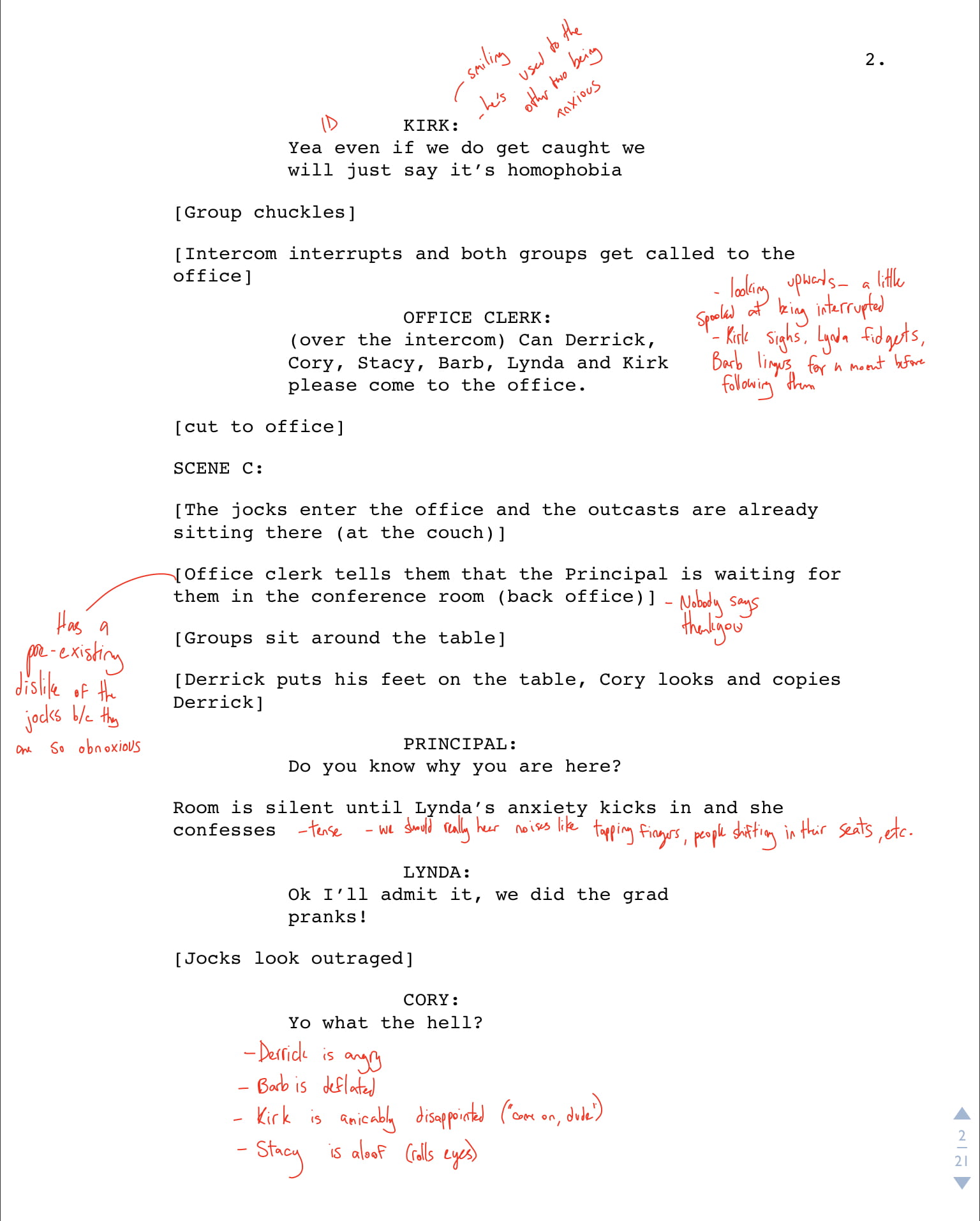
I had a conference with the actors where I went through these notes, as well as asking them about their own ideas or visions for the characters, and I spoke with the other departments about my visions for various scenes and characters, and the movie as a whole. Although I was frustrated and we were running low on time, I was determined to put my best effort into the movie, and not to dwell too much on the setbacks we had come up against. I wasn’t sure if people would listen to me as a director, especially after the reactions to the initial script were so harsh, and since it’s not a role I would normally occupy, but everyone was very receptive and respectful, and I really liked directing (in fact, it’s something I think I would have enjoyed doing from the beginning – which I can’t change now, but is important to note for future reference.)
When our time for filming was eventually cut off and I left, covered in fake blood and emo clothing, to go to a family dinner, I did have some frustrations about how things had ended up, but I was not as upset as I had been at earlier stages. I was, in part, relieved to be done with what was overall quite a stressful experience, but I also felt that I had done all I could do.
During our MPoL meeting, this project was brought up as an example of something our class didn’t do well on – and, certainly, there were aspects I could have improved on. The first script, evidently. Clarifying the message of the story. Coordinating time, and planning in advance so that everything came out well the first time. However, I put a lot of work into this project, and I truly feel that I did the best that I could, and that a lot of the reasons it didn’t work out were out of my control. My main takeaway, then, was not where I could improve my work, but more about my attitude towards my work; the importance of not giving up or getting so caught up in being upset that you never actually move forwards, the risk and reward of trying out new things, and the fact that just because you don’t enjoy something at one point doesn’t mean that you can never enjoy it.
I would like to keep the same goal as last time – learning to sharpen the saw, and take care of my own needs – because I don’t feel that I’ve markedly improved at it. As my time in high school, and in some ways this phase of my life, draws to a close, it becomes increasingly important that I am able to take care of myself, especially since I may no longer be able to count on the supports I have now (like seeing my friends and family every day, having a pre-existing knowledge of my school, teachers, and community, and having my own room and space where I have privacy. Additionally, the lead up to o much change is still the cause of a lot of anxiety for me, and I want to lessen that so I can focus on enjoying my last year while also doing well.
My question to those of you who are here is what things you do in your own life to maintain a sense of balance, especially in the face of change or a foreign environment. As you answer, I am going to sit back, eat a piece of cheesecake, and reflect on how good change can sometimes be.
Toodles.
